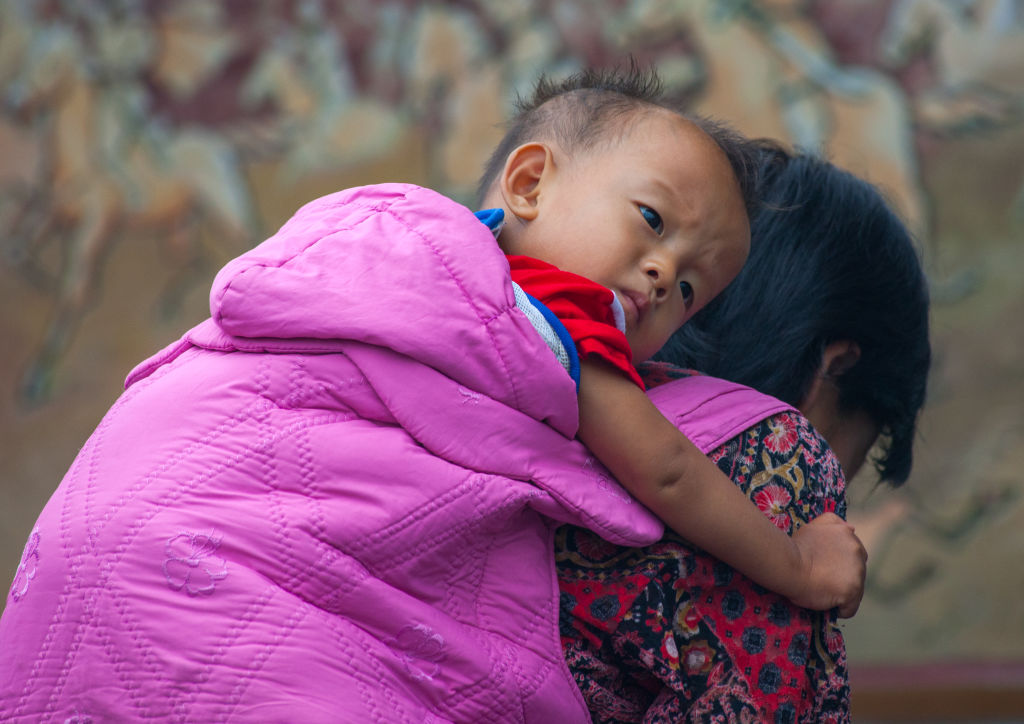An estimated 11 million people in North Korea — over 43 percent of the population — are undernourished and “chronic food insecurity and malnutrition is widespread,” according to a U.N. report issued Wednesday.

The report by Tapan Mishra, the head of the U.N. office in North Korea, said that “widespread undernutrition threatens an entire generation of children, with one in five children stunted due to chronic undernutrition.”
With only limited health care and a lack of access to clean water and sanitation, “children are also at risk of dying from curable diseases,” the report added.
READ MORE: Kim Jong Un deploys K-pop, basketball fashion in bid to modernize North Korean pop culture
Mishra said that last year’s U.N. appeal for $111 million to help 6 million of North Korea’s most vulnerable people was only 24 percent funded, one of the lowest levels in the world.
U.N. spokesman Stephane Dujarric told reporters Wednesday that the U.N. humanitarian team in the country is calling for $120 million “to urgently provide life-saving aid to 3.8 million people.” Without adequate funding this year, some agencies providing desperately needed help to North Koreans will be forced to close down, he said.
Dujarric said North Korea’s government asked last month for help from international humanitarian groups to combat food shortages. He said food production figures provided by North Korea showed “there is a food gap of about 1.4 million tons expected for 2019, and that’s crops including rice, wheat, potato and soybeans.”
- California mom accidentally invites 487 people to child’s 1st birthday
- ‘Hiroshima-level casualties’ feared in final battle for North Darfur
- Andrew Tate to stand trial on trafficking, rape charges in Romanian court
- Canada is unblocking aid to Afghanistan but delay is ‘extremely frustrating’: advocate
WATCH: Kim Jong Un receives hero’s welcome upon return to North Korea

Mishra’s report said North Korea faces annual shortfalls in agricultural production because of a shortage of arable land, lack of access to modern agricultural equipment and fertilizers, and recurrent natural disasters. Last year, it said, there was a severe heat wave in provinces considered to be the country’s “food basket,” and the food situation was further aggravated by Typhoon Soulik in late August.
Many North Koreans don’t eat an adequately diverse diet, which reinforces their poor nutrition, Mishra said.
Although the national rate of stunting has dropped significantly from 28 percent in 2012 to 19 percent in 2017, Mishra cited major regional differences varying from 10 percent in the capital area of Pyongyang Province to 32 percent in Ryanggang Province in the northwest bordering China.
READ MORE: Hack exposes identities of nearly 1,000 North Korean defectors in South Korea
He said an estimated 3 percent of children under age 5 — approximately 140,000 — “suffer from wasting or acute malnutrition” and “have a higher risk of mortality.”
“The main underlying causes of wasting are poor household food security, inadequate feeding and care practices, as well as poor access to health, water, hygiene and sanitation services,” Mishra said.
The report was issued days after a summit between North Korean leader Kim Jong Un and President Donald Trump ended without any agreement on the North’s nuclear program.
WATCH: North Korea offers their explanation for why Hanoi talks collapsed

While U.N. Security Council sanctions imposed on North Korea over its nuclear and missile programs are supposed to exempt humanitarian activities, “humanitarian agencies continue to face serious unintended consequences on their programs,” Mishra said. He cited “lack of funding, the absence of a banking channel for humanitarian transfers and challenges to the delivery of humanitarian supplies.”
North Korea’s banking channel has been suspended since September 2017 and attempts to find a replacement have been unsuccessful, Mishra said.
READ MORE: Trump would be ‘very disappointed’ in Kim Jong Un if North Korea restores rocket launch site
He welcomed new procedures approved by the Security Council committee monitoring sanctions against North Korea last August to streamline and expedite requests for exemptions from sanctions for humanitarian programs.
However, Mishra said, “the continued risk-averse approach taken by suppliers and some authorities in transit countries … continues to cause significant delays in the delivery of life-saving humanitarian assistance.”



Comments